See also: tribulus terrestris supplements
Tribulus terrestris is a plant (Tribulus terrestris L.) belonging to the family of Zygophyllaceae. It is widespread in Europe, Asia, Africa and Australia, in tropical warm areas.
Traditional use
Tribulus terrestris has been used for centuries in traditional Chinese and Indian medicine for different purposes. According to local beliefs this plant has a regulating and purifying action (it acts in dysfunctions of renal, hepatic and gastrointestinal origin); as such it is used for the treatment of impotence, edema, abdominal swelling and cardiovascular diseases.
Phytotherapeutic properties

Family: Zygophyllaceae
Type: Tribulus L.
Species: Tribulus terrestris L.
Synonyms: tribolo, puncture vine, Bai Ji Li
Origin: plant originally from India, but now present in much of North America as a weed
However, the most important property of tribulus terrestris is linked to its presumed stimulating action on the production of androgens. These hormones, typical of men but also very important for the female organism, regulate libido, sexual characteristics and muscle development. By virtue of these characteristics, tribulus terrestris has been used for centuries in various countries as an aphrodisiac plant capable of increasing male and female fertility by compensating for any hormonal deficiencies.
Around the mid-90s these properties were supported and enhanced by a group of Olympic athletes from Eastern Europe (mainly of Bulgarian and Russian origin). The most important studies that highlight the hormone-stimulating properties of this plant come from these countries. These effects are attributed to a group of organic substances with hormone-like activity called saponins.
The seeds of tribulus terrestris are in fact rich in protodioscin, a steroid saponin that would act by increasing the endogenous production of testosterone, dihydrotestosterone, luteinizing hormone (LH), dehydroepiandrosterone (DHEA), dehydroepiandrosterone sulfate (DHEA-S), with a consequent increase in spermatogenesis and libido in experimental animals and humans (Gauthaman K. et al. 2002, 2003).
Numerous other independent studies, often funded by the tribulus terrestris-based supplement companies themselves, reaffirm and underline these properties.
The confirmation of the hypothesis that the extracts of this plant would be useful in the treatment of erectile dysfunctions would come from another study. During this research a group of mice given tribulus terrestris proved to be more sexually active and presented a more intracavernous pressure. high compared to untreated mice (intracavernous pressure is recorded inside the corpora cavernosa of the penis, structures comparable to sponges which, filling with blood, allow erection).
Tribulus terrestris products were initially advertised widely on thousands of websites and magazines, especially aimed at bodybuilding practitioners. Today the extracts of this plant are used in the preparation of pills that promise to awaken sexual desire and energies. What is true about all this?

During a "other research in which Tribulus was administered only, no increases in lean mass, decrease in adipose tissue were recorded and the sports performance of the subjects studied was not improved. [Antonio J et al. Int J Sport Nutr Exerc Metab 200; 10: 208-15]
Further studies have shown that tribulus terrestris does not increase LH secretion in young men (aged 20 to 36 years). Doses of 10mg / kg and 20mg / kg of tribulus terrestris per day for 4 weeks produced no significant difference in either testosterone, androstenedione, or LH. [V. K. Neychev and V. I. Mitev. "The aphrodisiac herb Tribulus terrestris does not influence the androgen production in young men". Journal of Ethnopharmacology 101 (1-3): 319-323. ]
Many authors point out that most of the studies agreed in attributing important health effects to this plant have been conducted on subjects with low-medium initial testosterone values. Based on these observations, tribulus terrestris could have a mild efficacy only in people. with basic hormonal deficiencies.
Does Tribulus terrestris work?
Surely that of tribulus terrestris, as well as that of many other supplements is a profitable business, which works perfectly. And if a part of this money is invested to finance research groups whose results serve only to fill websites, newspapers and the pockets of those who commission them, the business works even better.
The studies, the real ones, as we have seen, speak for themselves. We therefore invite readers to use a bit of common sense and learn to smile in the face of those who propose miraculous solutions.
Nature gives us many beautiful things, including some plants, whose positive effects are widely recognized. Tribulus terrestris could also be included among these, although many studies show the opposite in healthy subjects and athletes. What is certain is that if this plant has the ability to increase testosterone secretion, with all the consequences of the case, it is still a "very mild and superficial action that has nothing to do with the miraculous effects promised by those who markets the extracts.
If you really want to increase your testosterone levels, train seriously, regulate your lifestyle and arm yourself with good patience. If you prove that you have, as they say in the jargon, "balls" (tenacity), then your eponymous endocrine glands will slowly start producing more testosterone as well. If, on the other hand, you prefer to live on hope, run to herbalist's shop to buy the umpteenth portentous extract of tribulus terrestris, without complaining about the lack of results.
A final note concerns the standardization of Tribulus Terrestris extracts. If you want to experience the effects of this supplement on your body, remember that protodioscin constitutes about 45% of the extract obtained from the aerial parts of Tribulus terrestris. The exclusive use of standardized protodioscin extracts or steroidal saponins is therefore recommended.
Side effects
At common doses of use, Tribulus terrestris appears well tolerated and devoid of important side effects (beyond the ubiquitous gastro-intestinal disorders that can occur in sensitive subjects). Curious is the clinical case of a young weightlifter (21 years old) who had chronically taken Tribulus terrestris-based products to improve his athletic performance. Following the use of these products, the young man developed gynecomastia with an alteration of the hormonal profile (reduction of the levels of FSH, LH and testosterone with normal levels of prolactin, estradiol and progesterone); this alteration was resolved only after the boy stopped taking Tribulus terrestris (Jameel JK, Kneeshaw PJ, Rao VS, Drew PJ. Gynaecomastia and the plant product "Tribulus terrestris". Breast. 2004; 13: 428-430).

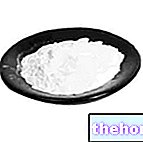
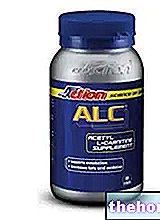
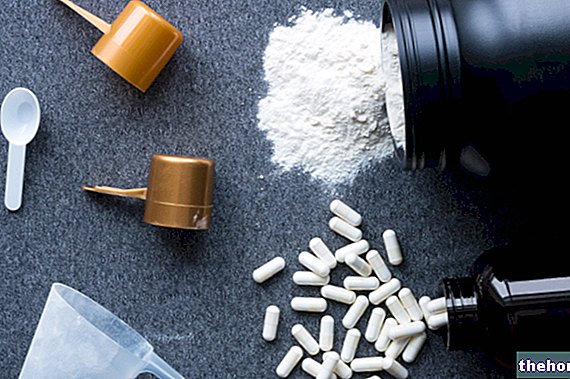
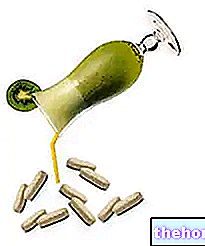
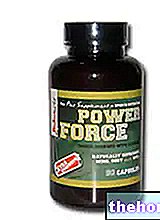
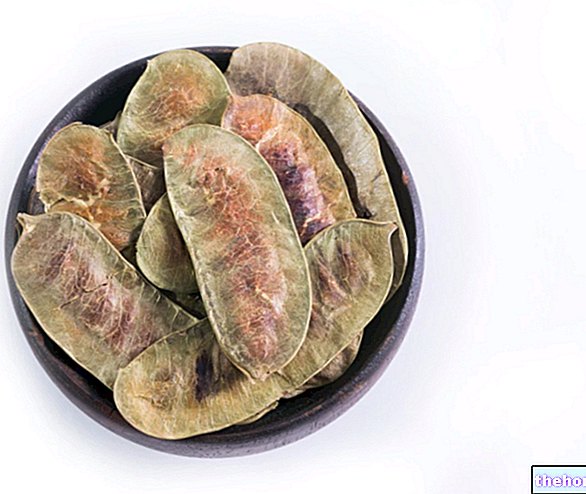









.jpg)











